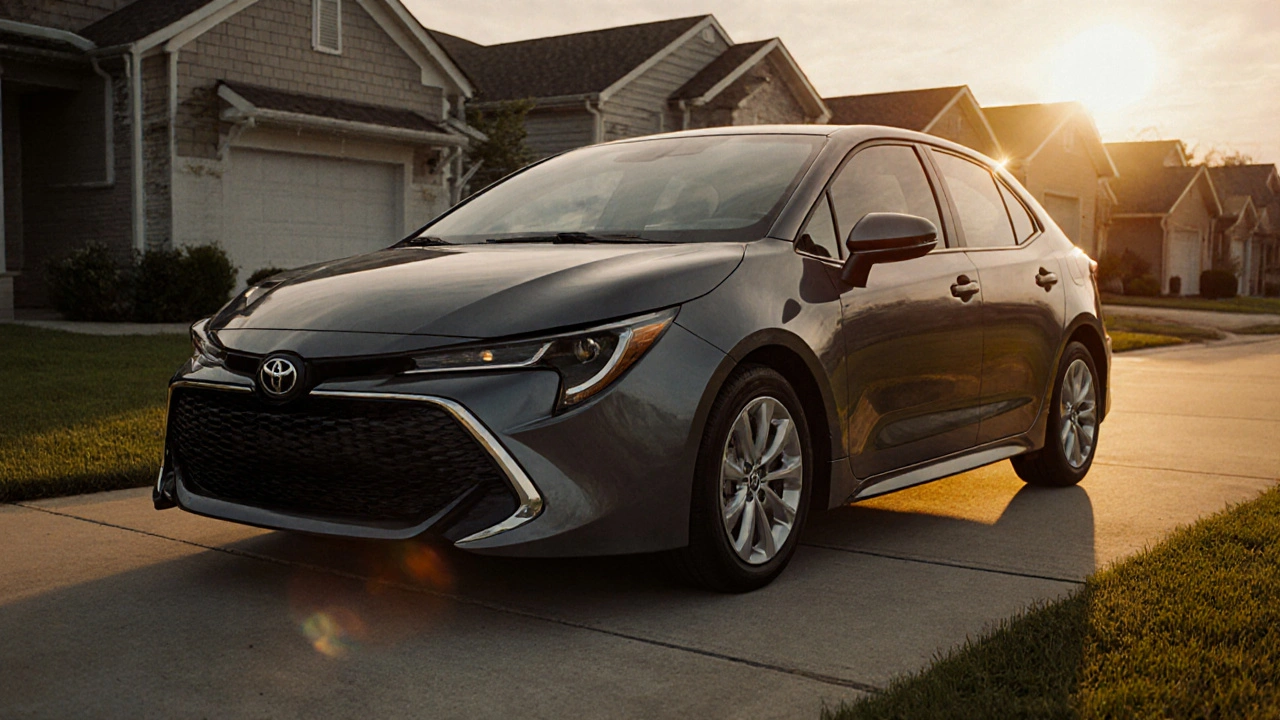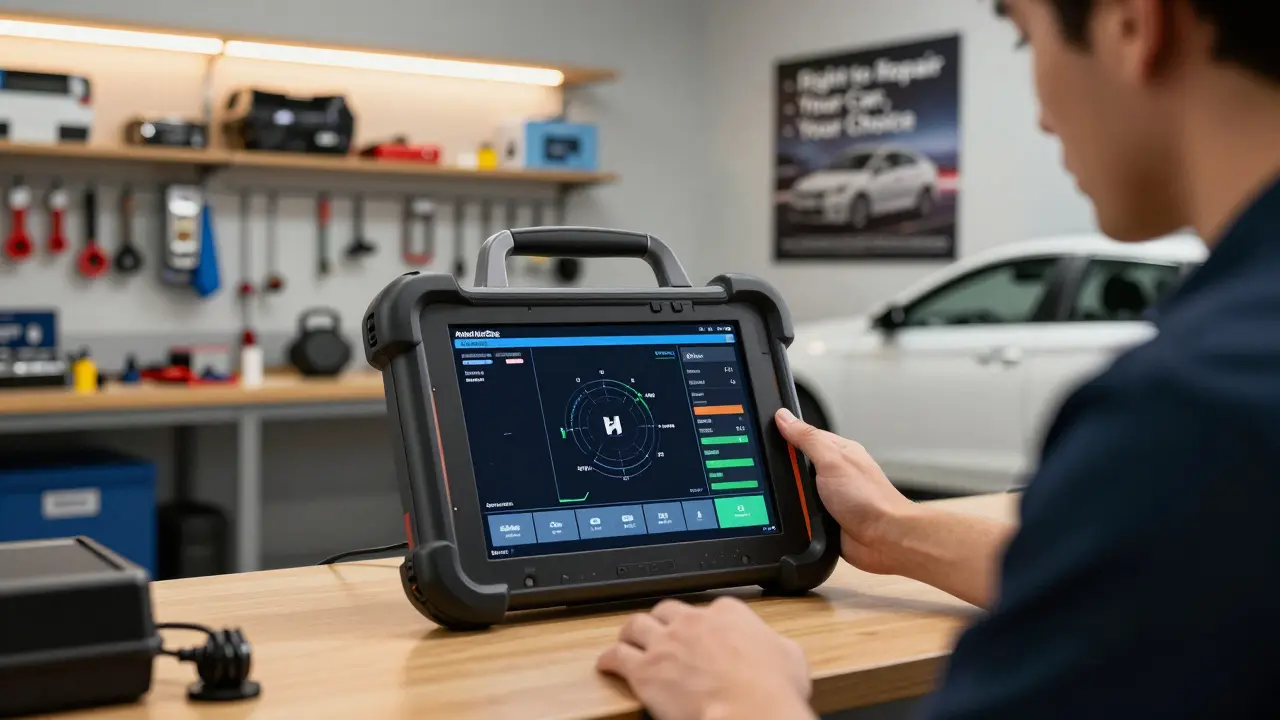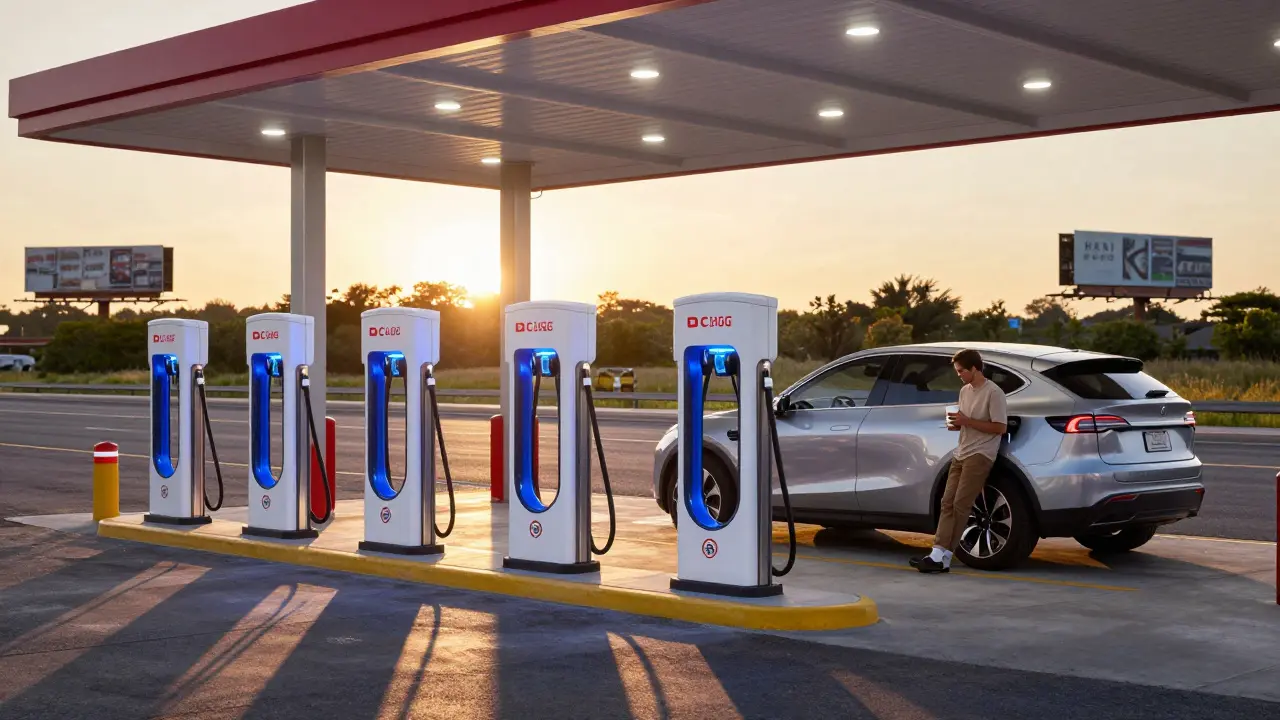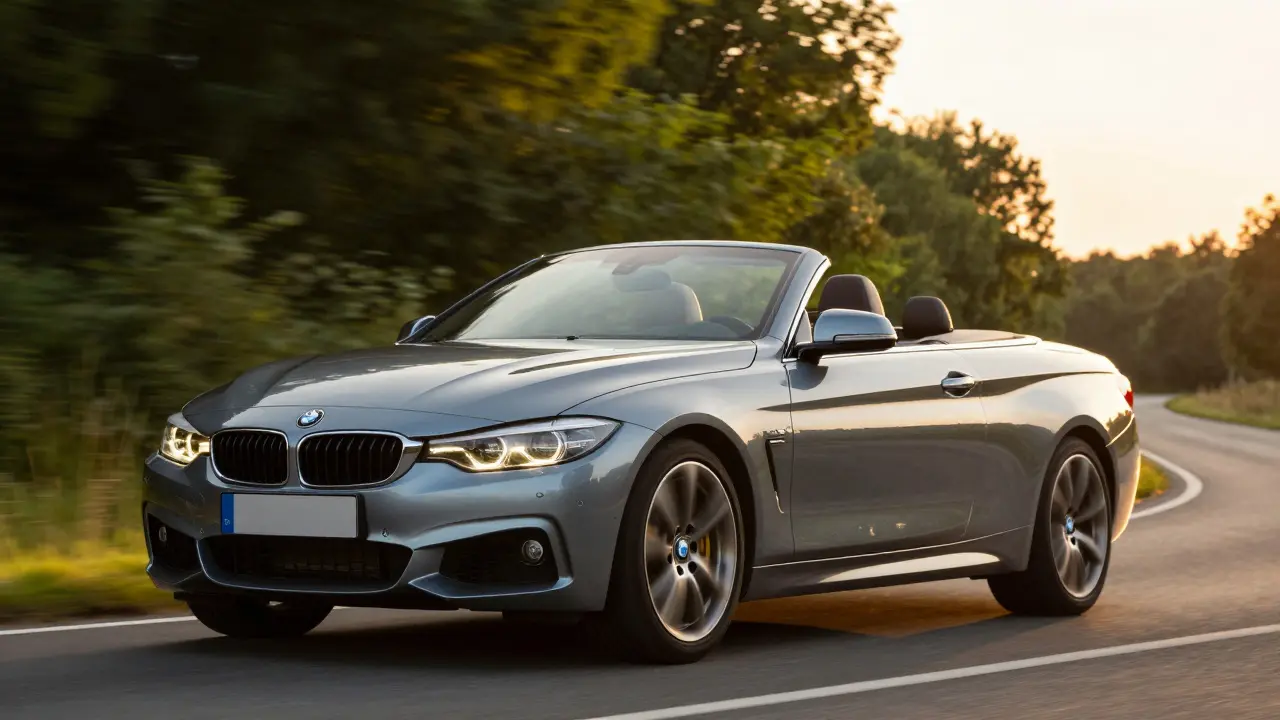Why Resale Value Matters More Than You Think
Buying a car isn’t just about the sticker price. It’s about what you get back when you sell it. A $30,000 SUV that drops to $12,000 in three years costs you $18,000 in depreciation. But one that holds onto $20,000? That’s $10,000 less lost. Resale value isn’t just a number-it’s your financial safety net. Whether you trade in every three years or plan to sell later, picking a car that keeps its worth saves you real money.
Most people focus on monthly payments or fuel economy. But if you’ve ever traded in a car and felt shocked by the offer, you know how big a difference this makes. The best resale values don’t come from luxury badges or flashy tech. They come from reliability, simple design, and strong demand in the used market.
Top Brands for Resale Value in 2025
Some brands have built a reputation for holding onto value year after year. It’s not luck-it’s consistency. Toyota, Honda, and Subaru lead the pack because they don’t chase trends. They build cars that last, cost little to fix, and never go out of style.
Toyota’s reputation for reliability isn’t marketing fluff. A 2022 Toyota Corolla still sells for over 70% of its original price after three years. That’s the highest in its class. Honda’s Civic and CR-V follow closely. Even after 100,000 miles, these cars are still in high demand. Subaru’s Outback and Forester hold value because they’re built for real life-snow, dirt roads, road trips. They don’t need to be perfect to be desirable.
Trucks are a different story. The Ford F-150, Chevrolet Silverado, and Ram 1500 all keep over 60% of their value after five years. Why? Because they’re workhorses. Businesses and families alike need them, and they’re not easy to replace. Even with rising prices, used trucks sell fast.
On the other end, luxury brands like BMW and Mercedes-Benz lose value fast. A 2021 BMW 3 Series might drop to 45% of its original price in three years. Why? High repair costs, complex tech that breaks, and a flood of certified pre-owned models hitting the market.
Best Models for Resale Value (2020-2025)
Brand matters, but the exact model matters more. Here are the top performers by vehicle type, based on data from Kelley Blue Book and Edmunds through mid-2025.
- Toyota Corolla - Holds 72% of value after three years. Simple, efficient, and always in demand.
- Honda Civic - 70% retained value. Easy to maintain, great fuel economy, and never outdated.
- Toyota RAV4 - 71% after three years. The best-selling SUV for a reason-reliable, spacious, and never too flashy.
- Honda CR-V - 69%. A close second to the RAV4. More interior space, just as dependable.
- Subaru Outback - 68%. The only midsize wagon that still sells well. All-wheel drive and rugged build make it a favorite.
- Toyota Tacoma - 74% after three years. The best-selling midsize truck for resale. No fancy tech, just tough and repairable.
- Ford F-150 - 63% after five years. The most popular truck in America for over 40 years. Demand never drops.
- Jeep Wrangler - 70%. A cult favorite. Even high-mileage models sell fast because owners are loyal.
Notice a pattern? None of these are electric. Not yet. EVs like the Tesla Model Y and Hyundai Ioniq 5 have high initial prices and uncertain long-term battery life. Their resale values are still falling. A 2022 Tesla Model Y might only hold 50% of its value after three years. That’s not because they’re bad cars-it’s because the market hasn’t settled on what a used EV is worth.
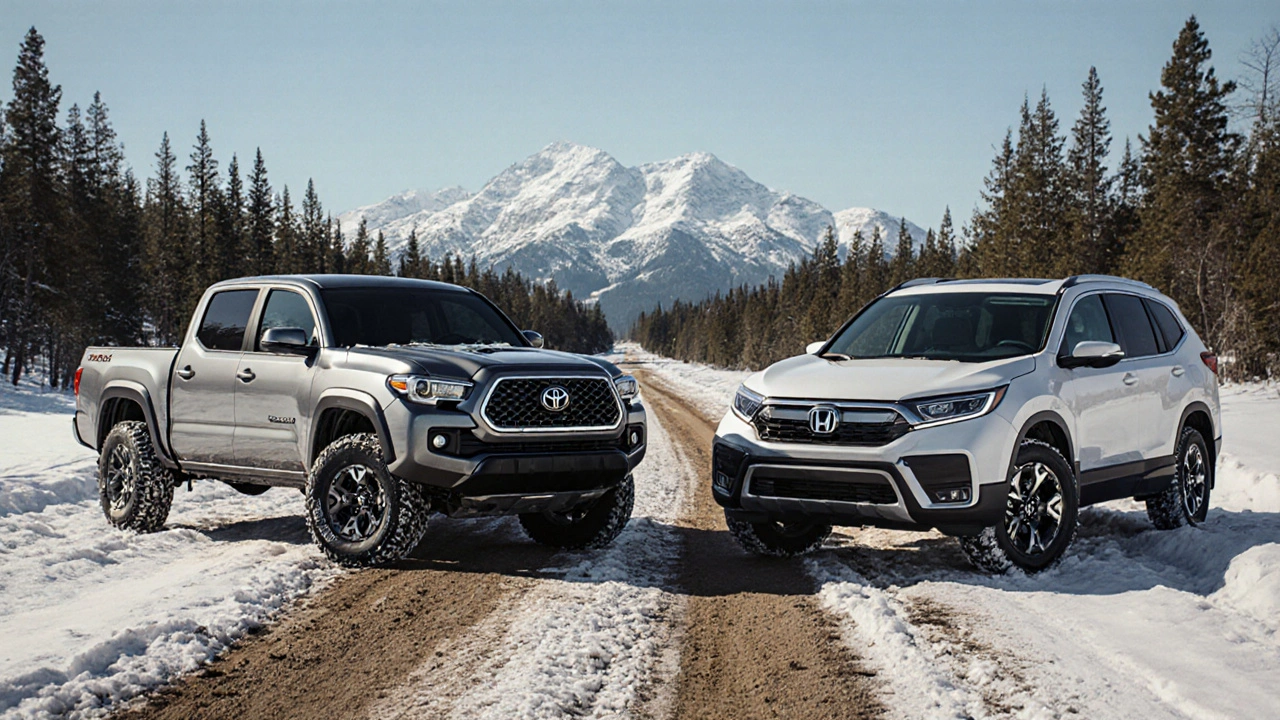
What Makes a Car Hold Its Value?
It’s not about how fast it goes or how many screens it has. It’s about four things: reliability, simplicity, demand, and cost of ownership.
Reliability is the biggest factor. If a car rarely breaks down, people want it. Toyota and Honda spend years testing parts. They don’t use fragile electronics or unproven systems. A 2020 Corolla with 120,000 miles still runs like new because the engine and transmission are built to last.
Simplicity matters too. Cars with manual climate controls, physical buttons, and basic infotainment systems hold value better than those with touchscreens that freeze or voice assistants that don’t understand you. Buyers in the used market want something that just works.
Demand is what keeps prices up. If 10,000 people want a used Subaru Outback and only 2,000 are for sale, prices stay high. Trucks and SUVs have that demand. Compact sedans? Not so much. Fewer people are buying them, so their resale value drops faster.
Cost of ownership includes insurance, fuel, and repairs. A car that costs $50 a year to insure and $0.08 per mile to run will always be more attractive than one that costs $150 and $0.15. That’s why the Corolla beats the Audi A3, even if the Audi feels fancier.
What to Avoid If You Care About Resale Value
Some cars look great on paper but are financial traps. Here’s what to skip:
- Electric vehicles with short range - If the battery dies early, the car’s value plummets. Even Tesla’s resale value is dropping as more used models flood the market.
- Complex luxury cars - BMWs, Audis, and Lexuses with advanced driver aids and touchscreens cost hundreds to fix. Buyers avoid them.
- Discontinued models - If a car is no longer made, parts become scarce. The Chevrolet Cruze and Fiat 500 are examples. Their resale values dropped 30% after discontinuation.
- High-mileage performance cars - A 2021 Mustang GT with 80,000 miles? It’s still a fun car, but collectors don’t want it. Value drops fast once the odometer climbs.
Also avoid cars with bad recall histories. The 2018-2020 Hyundai Elantra had transmission issues. Even after fixes, buyers still worry. That’s why its resale value is 15% lower than the Honda Civic’s.
How to Maximize Your Car’s Resale Value
Even the best car loses value if you treat it poorly. Here’s how to protect your investment:
- Keep service records - Buyers pay more for cars with proof of oil changes, timing belt replacements, and brake checks. Even if you did the work yourself, save receipts.
- Don’t modify it - Aftermarket wheels, loud exhausts, or tinted windows turn off most buyers. Stock cars sell faster and for more.
- Wash and wax regularly - A faded paint job can knock $2,000 off your trade-in. Keep the interior clean too-stains and odors are deal-breakers.
- Fix small issues early - A cracked windshield or flickering headlight seems minor, but buyers assume the worst. Spend $300 now to avoid losing $1,500 later.
- Sell before the model changes - When a new version arrives, the old one’s value drops fast. Sell your 2025 RAV4 before the 2026 model hits dealerships.
One more tip: Avoid leasing if you plan to sell later. Leased cars often have higher mileage and wear-and-tear fees that hurt resale. Buy outright if you want to keep your options open.
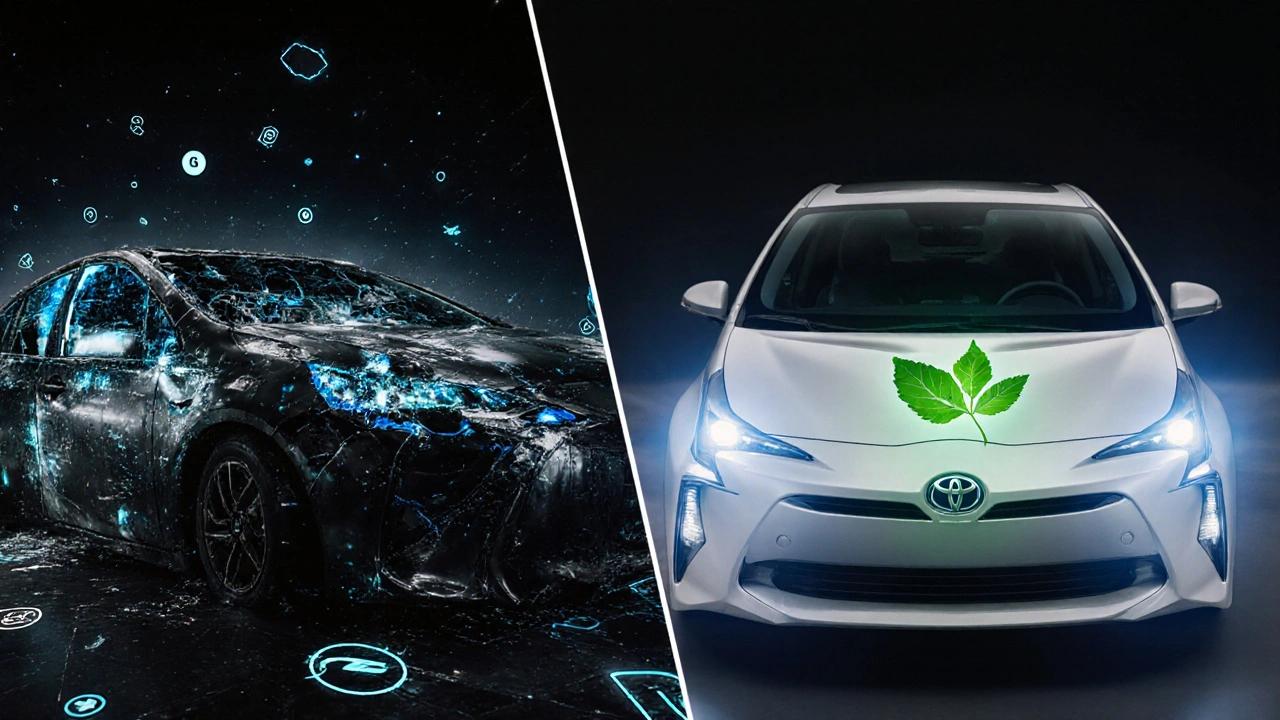
Resale Value vs. Total Cost of Ownership
Some cars are cheap to buy but expensive to own. Others cost more upfront but save you money over time. The Toyota Corolla costs about $8,000 more than a Kia Rio, but after five years, it’s worth $7,000 more. That gap closes the cost difference-and then some.
Here’s a quick comparison of three popular models over five years:
| Model | Starting Price (2025) | 5-Year Resale Value | Estimated Fuel Cost | Estimated Repair Cost |
|---|---|---|---|---|
| Toyota Corolla | $22,500 | $16,200 | $5,200 | $2,100 |
| Honda Civic | $23,000 | $16,000 | $5,400 | $2,300 |
| Hyundai Elantra | $20,500 | $12,000 | $5,600 | $3,500 |
See the difference? The Elantra starts cheaper, but you lose $4,200 more in depreciation and pay $1,400 more in repairs. The Corolla wins by a wide margin.
What’s Changing in 2025?
Electric vehicles are getting better, but they still lag in resale. Tesla’s Model 3 is improving, but it’s still not matching the Corolla’s numbers. The Hyundai Kona Electric and Nissan Leaf are dropping in value faster than gas cars. Why? Battery degradation fears, software issues, and a lack of buyer confidence.
Hybrids are stepping up. The Toyota Prius and Honda Insight are holding value better than ever. Buyers who want efficiency without range anxiety are choosing them over pure EVs. That’s why the Prius still sells for over 65% of its original price after three years.
Trucks and SUVs will keep leading the pack. As gas prices stay above $3.50 a gallon, buyers want fuel-efficient models that still carry cargo or tow trailers. The RAV4 Hybrid and Ford Maverick (with its hybrid engine) are gaining ground. They’re not flashy, but they’re smart buys.
Final Advice: Buy to Keep, Not to Flip
Resale value isn’t about making a profit. It’s about minimizing loss. The best strategy? Buy a car you love, maintain it well, and drive it until you’re ready for something new. Don’t chase the latest model. Don’t upgrade every three years unless you have to.
If you want to save money over time, pick a Toyota, Honda, or Subaru. Stick to the base model. Skip the sunroof, the premium sound system, the leather seats. They don’t add value. They add cost.
And if you’re buying used? Look for cars with low mileage, clean titles, and full service history. A 2020 Corolla with 45,000 miles and a full service record is a better deal than a 2023 model with 80,000 miles and no paperwork.
Resale value isn’t magic. It’s math. And the math always favors the simple, reliable, and practical.
Which car brand has the highest resale value in 2025?
Toyota leads in resale value across most categories, especially with models like the Corolla, RAV4, and Tacoma. Honda and Subaru are close behind. These brands consistently hold 65-75% of their original value after three years due to reliability, low repair costs, and strong demand in the used market.
Do electric cars hold their value well?
Most electric cars still lose value faster than gas-powered models. Tesla Model Y and Hyundai Ioniq 5 have seen resale values drop below 50% after three years. Buyers worry about battery degradation, software updates, and rapid tech changes. Hybrids like the Prius hold value better than pure EVs right now.
Is it better to buy a new or used car for better resale?
Buying used is smarter for resale value. New cars lose 20-30% of their value the moment you drive off the lot. A 2-3 year old car with low mileage and good service history often has the best mix of price and remaining value. You avoid the steepest depreciation and still get a reliable vehicle.
Should I avoid cars with lots of tech features?
Yes, if resale value is your goal. Touchscreens that freeze, voice assistants that don’t work, and complex driver aids that break are red flags for used buyers. Stick to models with simple controls, physical buttons, and proven reliability. A basic model with fewer features often sells faster and for more.
How do I check a car’s resale value before buying?
Use Kelley Blue Book (KBB) or Edmunds to see what similar models have sold for in your area. Look at listings for cars 2-4 years old with similar mileage and condition. If the average price is 65% or higher of the original MSRP, it’s a good sign. Also check for common issues on forums like Reddit or CarComplaints.com.
